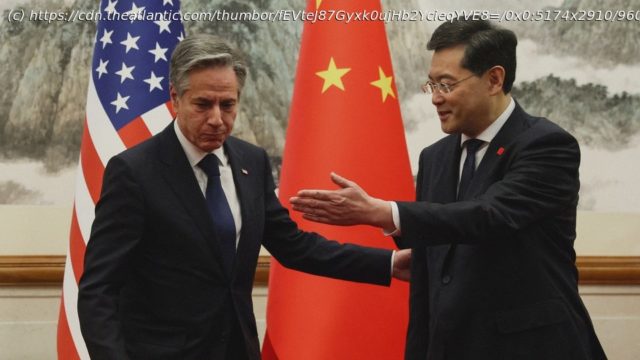A recent flurry of diplomatic talks shouldn’t be taken to mean that Beijing is looking for compromise with Washington.
A parade of senior American policy makers is traveling to Beijing on diplomatic missions to mend tattered relations between the United States and China. The U.S. climate envoy John Kerry is expected in Beijing on Sunday, a week after Treasury Secretary Janet Yellen was in town. Secretary of State Antony Blinken visited a month ago. After nearly a year of strained communication, the flurry of diplomacy is good news: If the two governments are speaking with each other, perhaps they won’t shoot at each other.
Or at least that’s the idea. The improved dialogue is President Joe Biden’s attempt to demonstrate the possibility of a middle path between conflict and appeasement in contending with China. He believes that the U.S. can and should compete with China while setting in place guardrails that will prevent competition from veering into confrontation. The two countries might even find opportunities to cooperate on pressing global concerns, such as climate change.
China’s leader Xi Jinping appears amenable, at least for the moment. In fact, Xi’s government was so eager to paint Yellen’s visit in a positive light that it laid things on a bit thick. Referring to a rainbow that appeared over Beijing upon Yellen’s arrival, Premier Li Qiang told Yellen that the U.S. and China can see “more rainbows” after a period of “wind and rain.” With the Chinese economy staggering badly, and the U.S. and its allies moving to “de-risk,” or reduce their reliance on China, Xi and his team seem to be in the mood to chat, charm, and change minds.
But these efforts should not be taken to mean that Xi accepts Biden’s two-track template for their relationship. Rather, Xi seems to believe the very opposite: that gentlemanly competition is not viable, and that Washington must either capitulate to Beijing’s wishes or prepare to slug things out. How Xi ultimately responds to Biden could make the difference between a Cold War–style era of great power competition—which would be bad enough—and a hot shooting war that would be catastrophic for everybody.
Read: China and the West are coming apart. Can China’s economy continue to rise?
American foreign-policy makers too often assume that they are in the driver’s seat in U.S. relations with other nations, and that the policies of other governments are, to a great degree, a reaction to Washington’s. Obviously, any country’s foreign policy does in part respond to others—China’s included. But national leaders also have their own agendas and goals that have little or nothing to do with specific decisions made and actions taken in Washington.
Xi Jinping most certainly has an agenda of his own, and he has made no secret of it. Since taking power more than a decade ago, he has stated his goal of achieving the “Chinese Dream” of “national rejuvenation,” which means the resurrection of China’s greatness on the world stage. Getting there entails “reunification,” as the Communists call it, with Taiwan to make the nation whole, based on Beijing’s definition of its rightful borders.






